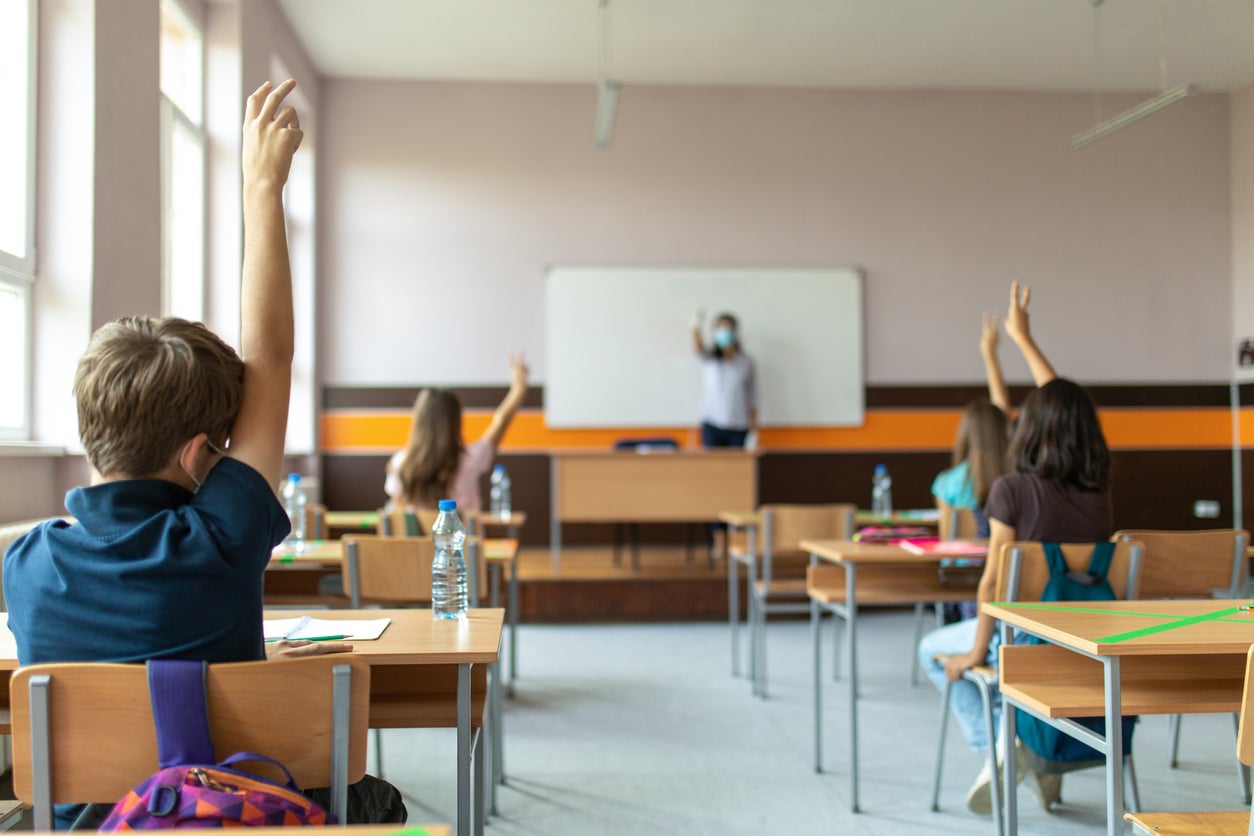Digital learning will struggle to replace the value of face-to-face teaching – whatever some may think
If anything, this is a generation who have glimpsed into the future and don’t particularly like what they have seen


Your support helps us to tell the story
From reproductive rights to climate change to Big Tech, The Independent is on the ground when the story is developing. Whether it's investigating the financials of Elon Musk's pro-Trump PAC or producing our latest documentary, 'The A Word', which shines a light on the American women fighting for reproductive rights, we know how important it is to parse out the facts from the messaging.
At such a critical moment in US history, we need reporters on the ground. Your donation allows us to keep sending journalists to speak to both sides of the story.
The Independent is trusted by Americans across the entire political spectrum. And unlike many other quality news outlets, we choose not to lock Americans out of our reporting and analysis with paywalls. We believe quality journalism should be available to everyone, paid for by those who can afford it.
Your support makes all the difference.It would have been inconceivable two years ago that the education system was capable of a near-total reinvention as a digital service. But during the course of the Covid-19 pandemic – with schools and universities physically shut for months on end – that was achieved.
Internet entrepreneurs like to talk about “moving fast and breaking things” – but in the case of the education world, it was the virus that moved fast and it was the virus that broke things. Schools and universities were simply forced to respond.
But respond they did, and at a speed that would have hitherto seemed impossible. Teaching, courses, lectures, tutorials, additional material, marking, feedback and parents’ evenings were moved online astonishingly quickly. Some students and parents faced with lockdown life, home-learning and domestic wifi, might have been critical of the speed of deployment but, taking a step back, the achievement was extraordinary. Imperfect and patchy, of course, but extraordinary nonetheless.
This has led some to suggest that some of this will be irreversible. These voices argue that the “ed-tech” genie will never be put back in the bottle. Evangelists for things like massive open online courses (“moocs”) and “flipped learning” (when lessons are delivered as videos to be watched at home and formal school becomes more like tutorials) believe their time has come.
They hope that the traditional centuries-old method of education – that a teacher or tutor or lecturer imparts knowledge, information or argument to their students in a live environment – can be reimagined.
I’m not so sure. Evidence suggests that demand for such a revolution is rather thin on the ground. Polling carried out by Public First, where I am a director, for the UUP Foundation’s Student Futures Commission found that just 21 per cent of undergraduates are happy with the current arrangement of mainly online teaching. Indeed, comfortably more than half (59 per cent) want universities’ top priority to be delivering face-to-face teaching when they return September.
The primary and secondary sector undoubtedly agrees. I ran countless focus groups through the most recent lockdown with parents and school staff and they were desperate to get teachers back in the classroom, doing what they do best: teaching pupils.
The reasons that underpin this desire to get teachers teaching and lecturers lecturing aren’t just academic (although this is a huge factor). Both parents and students alike are deeply worried about the huge mental health toll being paid by young people through the pandemic, and both are keenly aware of the many ways that schools and universities, filled with real young people interacting like young people, play in social and personal development.
Let’s be honest, this will never, ever be satisfactorily replicated online. If anything, this is a generation who have glimpsed into a digital future and don’t particularly like what they have seen.
No doubt, some bits and pieces of the education ecosystem (parents’ evening, public lectures) might stay online as the country – fingers crossed – returns to normal, but it seems there isn’t much demand for much more than that.
Some are fond of telling us that “nothing will be the same again” after this godawful 18 months. But, in schools and universities at least, it would seem the vast majority of those actually involved in teaching or being taught very much hope that they’re wrong.
Ed Dorrell is director of Public First
Join our commenting forum
Join thought-provoking conversations, follow other Independent readers and see their replies
Comments